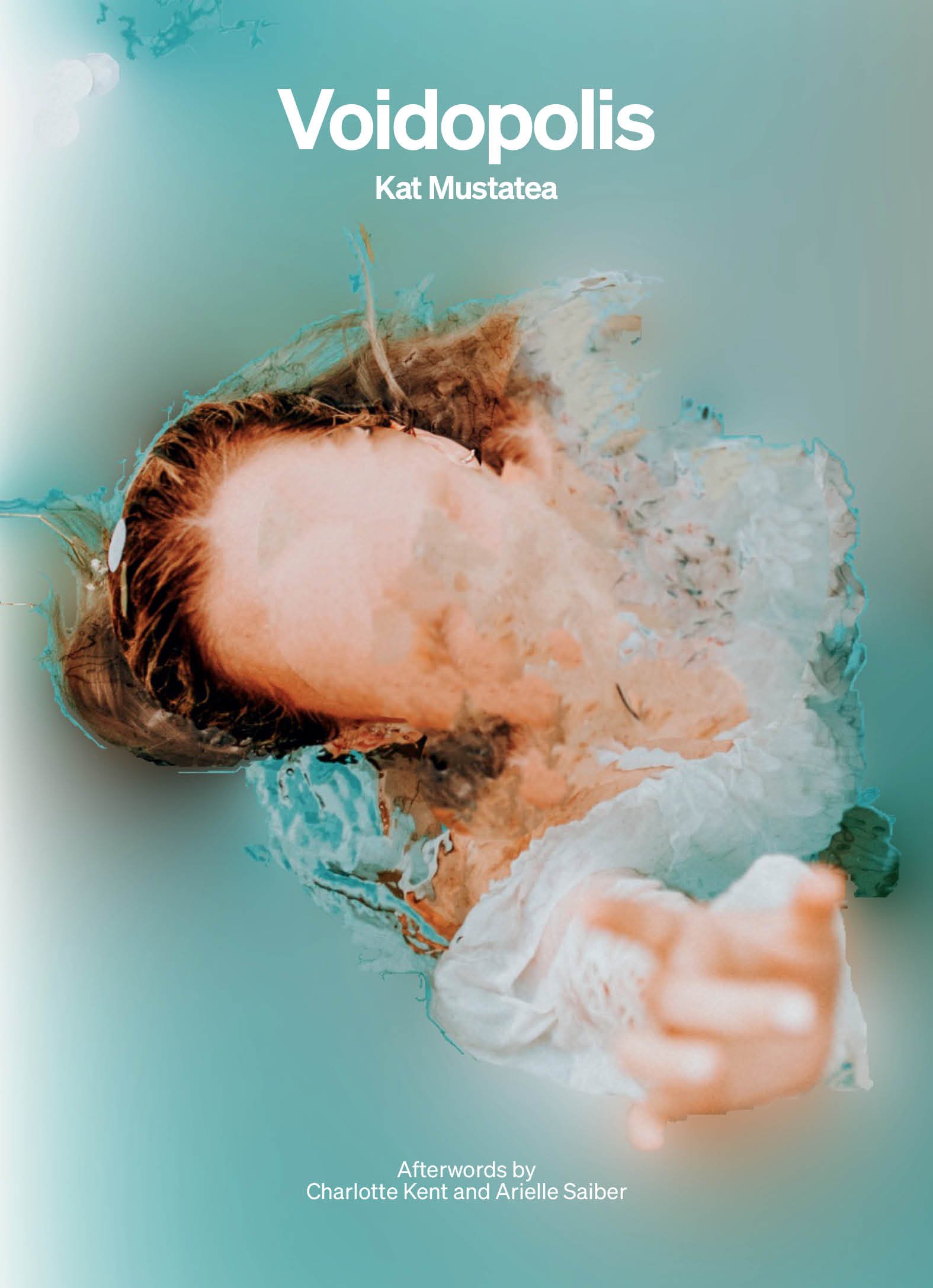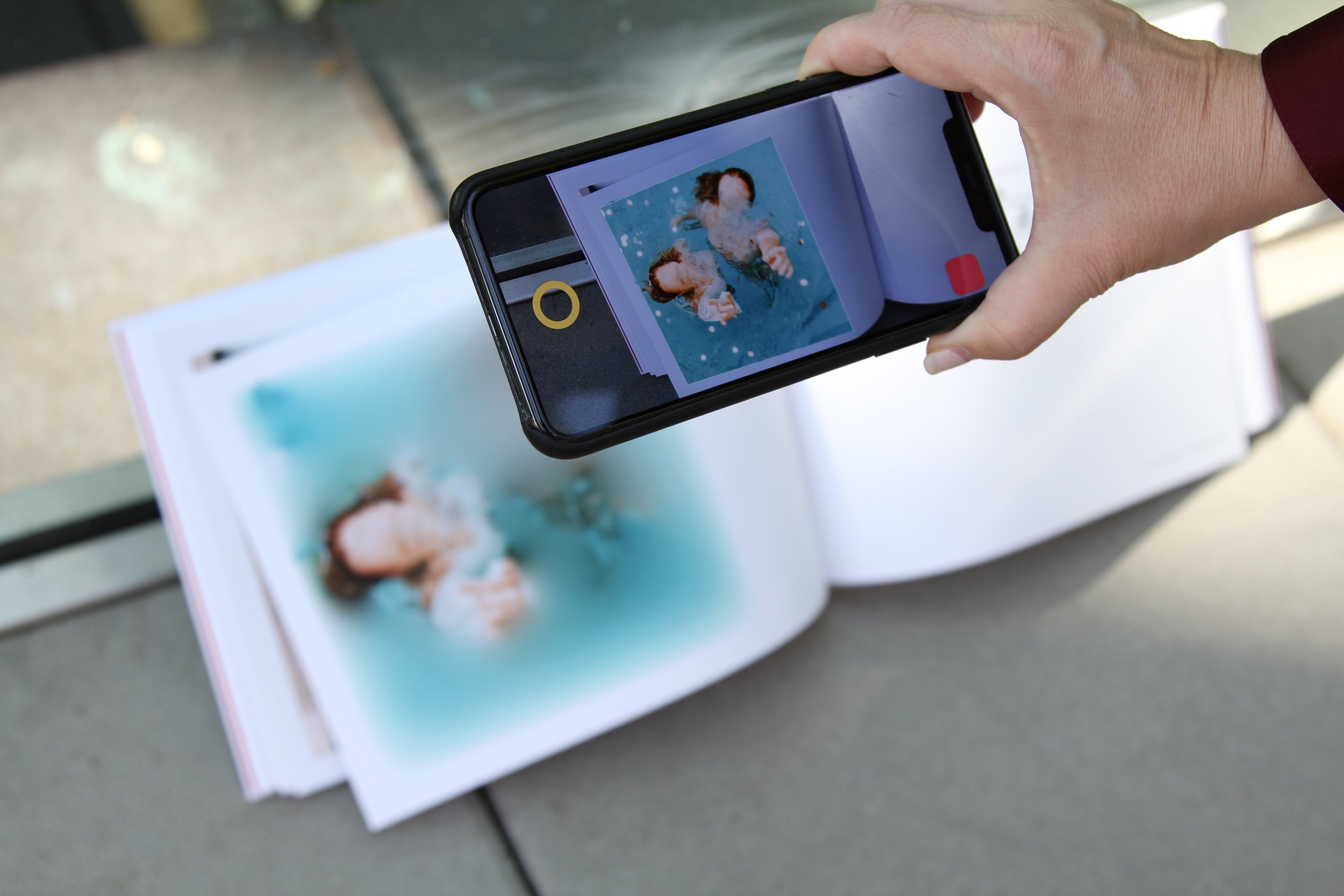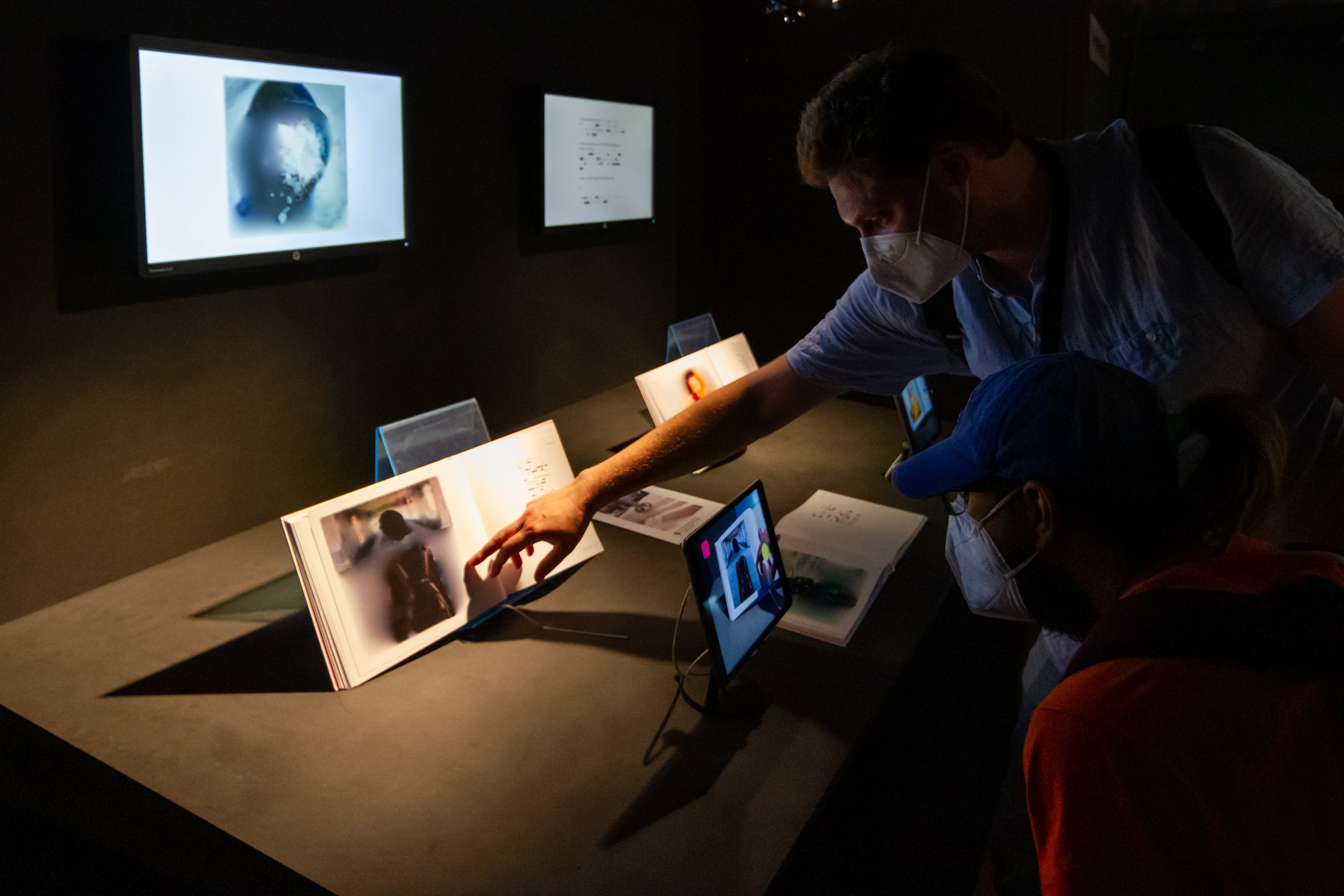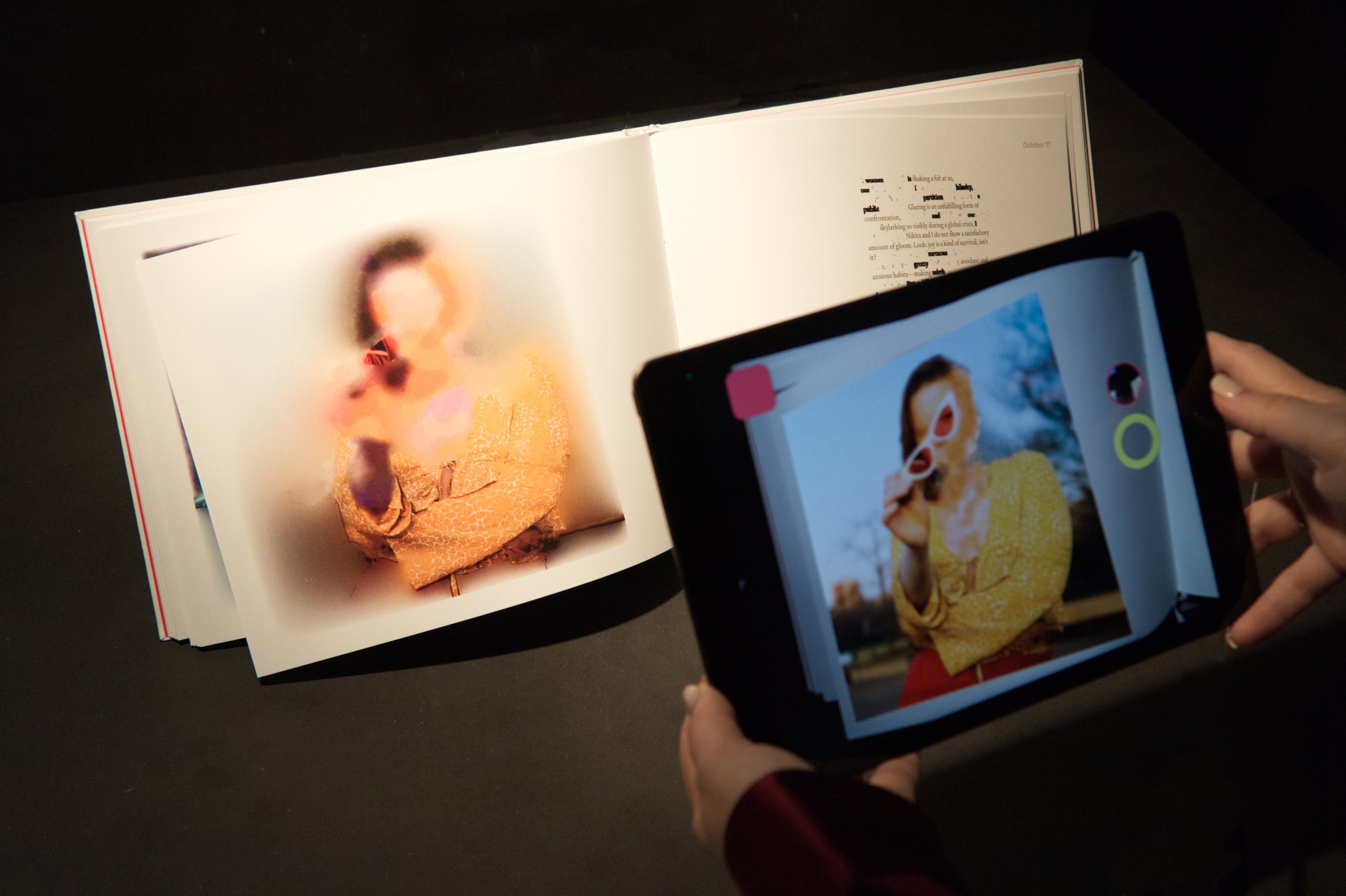

Voidopolis
Project Website: voidopolisbook.com
A hybrid digital artistic and literary project in the form of an augmented reality book made to disappear, Voidopolis retells Dante's Inferno as if it were set in pandemic-ravaged New York City. A first-of-its-kind publication from the MIT Press, Voidopolis can only be deciphered through a bespoke AR app published alongside the book.
Every detail of the story is crafted to evoke loss: the stock photographs of New York City with humans wiped away, the lipogrammatic AI-generative text missing the letter e. Over a period of months, the app works to decay the elements of the story just as memory might, leaving behind foggy imagery and half-remembered bits of language. Each July 1, the book resets, beginning anew the cycle of its own vanishing.
Voidopolis initially unfolded in a series of now-deleted Instagram posts on Kat Mustatea’s feed @kmustatea beginning on July 1st, 2020, and has since been exhibited internationally in a variety of digital and physical formats.



CREDITS: Voidopolis by Kat Mustatea, 2023 The MIT Press Leonardo Series | Book design and algorithmic decay: Studio Process | Afterwords: Charlotte Kent, Arielle Saiber | App Design: DOTDOT Studio |
FUNDING: The MIT Press Fund for Diverse Voices | Open Austria Art and Tech Lab | The US Embassy in Vienna | Café Royal Cultural Foundation Literary Grant | An Art Company
AWARDS: Digital Dozen Breakthroughs In Storytelling 2024 | Lumen Prize Shortlist 2023 | Winner of the Arts And Letters ‘Unclassifiable’ Prize For Literature | Winner of the Dante Prize, Dante Society London | Ars Electronica Prize Shortlist 2021 | Chautauqua Janus Prize For Literature Finalist 2021
SELECTED EXHIBITS: Ars Electronica, Linz (AT) | Fabrica, Treviso (IT) | International Center of Photography Bookstore, New York (USA) | Brooklyn Public Library, Brooklyn (USA) | Stanley Picker Gallery, London (UK) | New Images Festival Official Selection, Paris (FR) | Pittlerwerke, Leipzig (DE) | Electronic Literature Organization, Bergen (NO) | The Grid: Exposure Festival, San Francisco (USA) | New Media Artspace, New York (USA) | Annka Kultys Gallery, London (UK)
PRESS: NPR | Danielle Ezzo review in Fotodemic | WAMC The Roundtable | MIT Press | WRKF | NPR / Jefferson | Spine | Ampersand | CLOT | Dovetail | Dovetail (Feature) | LEONARDO Podcast | London ONE Radio | Reparative Redaction (Shannon Mattern) | xCoAx 2024 Proceedings